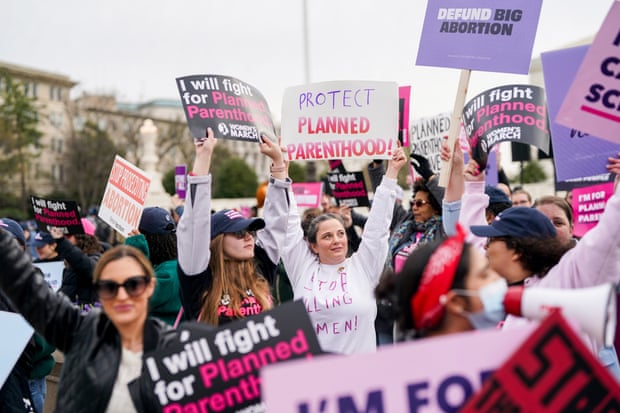The Supreme Court ruled Thursday that South Carolina can defund Planned Parenthood, clearing the way for other Republican-led states seeking to deprive the country’s largest abortion provider of taxpayer money.
In a 6–3 decision that split along ideological lines, the high court found the 1965 Medicaid Act does not allow individual patients to sue states over decisions to disqualify their preferred providers from receiving Medicaid money — enabling South Carolina to cut off funding for Planned Parenthood.
The ruling overturns lower court decisions that had allowed patients’ lawsuit to move forward. The Richmond, Va-based Fourth Circuit Court of Appeals favored Planned Parenthood by slapping an injunction on South Carolina’s implementation of its ban on funding for abortion.
“Like other States, South Carolina has an administrative process that lets providers challenge their exclusion from the State’s Medicaid program,” Justice Neil Gorsuch wrote for the majority.
“… private enforcement does not always benefit the public, not least because it requires States to divert money and attention away from social services and toward litigation. And balancing those costs and benefits poses a question of public policy that, under our system of government, only Congress may answer.”
In 2018, South Carolina Gov. Henry McMaster signed an executive order preventing all abortion clinics, including Planned Parenthood South Atlantic, from receiving Medicaid funding.
Medicaid is a federal and state government program that provides health insurance to over 70 million low-income Americans.
Attorneys for plaintiff Julie Edwards, a patient who is eligible for Medicaid, and Planned Parenthood argued that the ban violated federal law that states beneficiaries “may obtain” medical treatment from qualified providers. --->READ MORE HERE
 |
| Photograph: Al Drago/Bloomberg via Getty Images |
Decision could embolden red states in US to block clinics that provide abortions from receiving Medicaid funds
The US supreme court has paved the way for South Carolina to kick Planned Parenthood out of its Medicaid program over its status as an abortion provider, a decision that could embolden red states across the country to effectively “defund” the reproductive healthcare organization.
The case, Medina v Planned Parenthood South Atlantic, centers around a 2018 executive order from South Carolina’s governor, Henry McMaster, that blocked clinics that provide abortions from receiving Medicaid reimbursements. Medicaid is the US government’s main health insurance program for low-income people. About 80 million people rely on it.
“Payment of taxpayer funds to abortion clinics, for any purpose, results in the subsidy of abortion and the denial of the right to life,” McMaster said at the time, even though the reimbursements could not be used for abortions. Abortions are also now banned in South Carolina after six weeks of pregnancy.
Planned Parenthood South Atlantic, a Planned Parenthood affiliate that operates two clinics in South Carolina, and Julie Edwards, a patient who sought birth control, sued over McMaster’s order, arguing that it flew in the face of a federal provision known as the “free choice of provider” clause. That provision guarantees that people insured by Medicaid can freely choose their own providers as long as they accept the program and are qualified to provide care. Lower courts have repeatedly sided with Planned Parenthood South Atlantic and Edwards, keeping McMaster’s order from taking effect.
The case in front of the supreme court did not directly deal with the question of whether South Carolina could legally remove Planned Parenthood from Medicaid. Instead, the justices were asked to weigh in on a highly technical question: do Medicaid beneficiaries have the right to sue if they believe their right to a free choice of provider has been violated?
In a 6-3 decision joined by every member of the court’s conservative supermajority, the justices ruled that, essentially, individuals do not possess that “enforceable right”.
“The decision whether to let private plaintiffs enforce a new statutory right poses delicate questions of public policy,” Justice Neil Gorsuch wrote in the majority opinion. “New rights for some mean new duties for others. And private enforcement actions, meritorious or not, can force governments to direct money away from public services and spend it instead on litigation.”
He continued: “The job of resolving how best to weigh those competing costs and benefits belongs to the people’s elected representatives, not unelected judges charged with applying the law as they find it.” --->READ MORE HERE
If you like what you see, please "Like" and/or Follow us on FACEBOOK here, GETTR here, and TWITTER here.


No comments:
Post a Comment